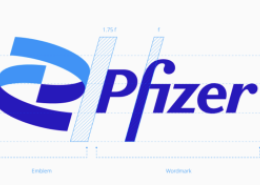New Analysis Suggests That Improvements in Kidney Function in Patients Treated with Lipitor Strongly Correlate with a Reduced Risk of Major Cardiovascular Events
First Time a Statin’s Kidney Benefits Linked to Reduced Cardiovascular Events
(BUSINESS WIRE)--Improvements in kidney function in patients treated with Lipitor® (atorvastatin calcium) were shown to strongly correlate with a reduced risk of major cardiovascular events in patients with pre-existing cardiovascular disease, according to a post hoc sub-analysis of the five-year Treating to New Targets (TNT) study presented today at the Annual Scientific Sessions of the American Heart Association.
“This is the first time for any statin that an association between improvements in kidney function and a reduction in cardiovascular events has been shown," said Dr. James Shepherd, clinical academic consultant, department of pathological biochemistry, University of Glasgow Medical School, and lead investigator of the analysis. “This is important for patients, since studies have shown that people with high cholesterol have a more rapid decrease in kidney function over time and that chronic kidney disease is more frequent in patients with cardiovascular disease.”
In this new post hoc analysis, kidney function was assessed using estimated glomerular filtration rate (eGFR), as recommended by the National Kidney Foundation. Increases in eGFR indicate improved kidney function.
Lipitor has previously been shown to provide dose-dependent increases in eGFR in heart disease patients. Findings from this new analysis showed that in patients with heart disease treated with Lipitor, for each 1 mL/min/1.73 m2 increase in eGFR there was a 2.7 percent relative reduction in risk of major cardiovascular events. Similar risk reductions per 1 mL/min/1.73 m2 increase in eGFR were observed for secondary endpoints such as major coronary events, nonfatal heart attack and fatal or nonfatal stroke.
“This analysis is exciting because it suggests a potential additional benefit of Lipitor -- improving kidney function while reducing cardiovascular events,” said Dr. Rochelle Chaiken, vice president of Pfizer’s cardiovascular and metabolic medical division.
Throughout the TNT study, both doses of Lipitor (10 and 80 mg) were generally well-tolerated.
About the TNT Study
The TNT study was an investigator-led trial coordinated by an independent steering committee and funded by Pfizer. The study enrolled 10,001 men and women with coronary heart disease aged 35 years to 75 years in 14 countries and followed them for an average of five years. Primary study results were published in TheNew England Journal of Medicine in 2005.
The primary endpoint of the original TNT study was the occurrence of a first major cardiovascular event, defined as death from heart disease, non-fatal heart attacks, resuscitated cardiac arrest, or fatal or non-fatal strokes.
Lipitor 80 mg is not a starting dose. Lipitor is not approved in all countries to reduce the risk of cardiovascular events in patients with existing heart disease.
Important U.S. Prescribing Information
Lipitor is a prescription medication. It is used in patients with multiple risk factors for heart disease such as family history, high blood pressure, age, low HDL (“good” cholesterol) or smoking to reduce the risk of a heart attack and stroke, certain kinds of heart surgery and chest pain. Lipitor is also used in patients with type 2 diabetes and at least one other risk factor for heart disease such as high blood pressure, smoking or complications of diabetes, including eye disease and protein in urine, to reduce the risk of heart attack and stroke.
Lipitor is used in patients with existing coronary heart disease to reduce the risk of heart attack, stroke, certain kinds of heart surgery, hospitalization for heart failure, and chest pain.
When diet and exercise alone are not enough, Lipitor is used along with a low-fat diet and exercise to lower cholesterol.
Lipitor is not for everyone. It is not for those with liver problems. And it is not for women who are nursing, pregnant or may become pregnant.
Patients taking Lipitor should tell their doctors if they feel any new muscle pain or weakness. This could be a sign of rare but serious muscle side effects. Patients should tell their doctors about all medications they take. This may help avoid serious drug interactions. Doctors should do blood tests to check liver function before and during treatment and may adjust the dose. The most common side effects are gas, constipation, stomach pain and heartburn. They tend to be mild and often go away.
For additional product information, visit www.Lipitor.com.
Media:
Vanessa Aristide, 212-733-3784
or
Rebecca Hamm, 212-733-8811
or
Investors:
Jennifer Davis, 212-733-0717








